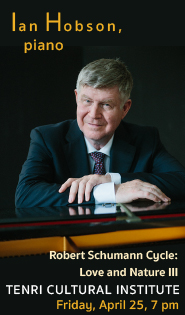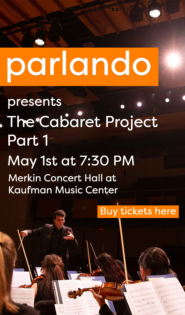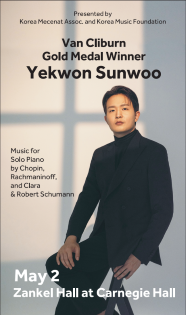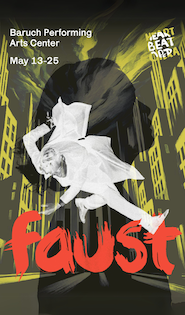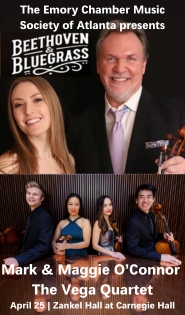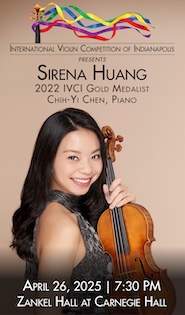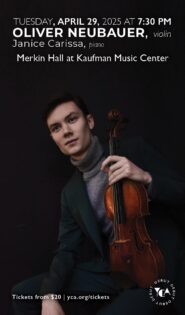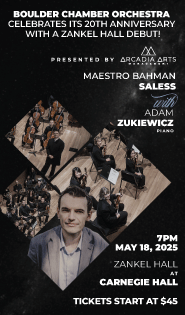A focused expression serves composers best in Kronos Quartet’s Zankel program
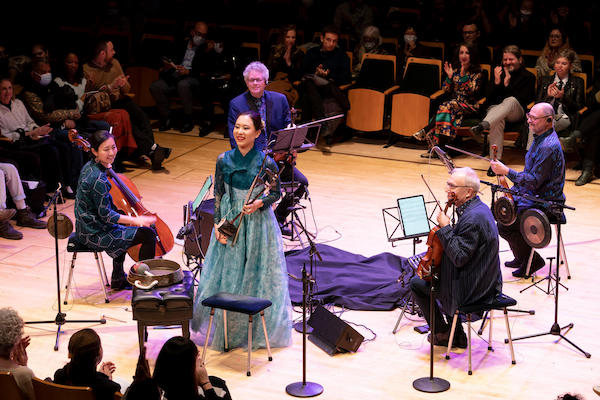
Among the Kronos Quartet’s many virtues, they curate excellent albums and concert programs. The Kronos experience is one of individual pieces of music that both enhance each other and reinforce the powerful logic of a larger concept. So it was a surprise Friday night at Zankel Hall that after decades of Kronos concerts, one ran into one that was jarringly uneven.
Perhaps it was because this night there was no larger concept or theme, other than Kronos playing pieces commissioned through their Fifty for the Future project. Through that, Kronos has brought 50 new pieces to life and made them available for free through their website, so that “any quartet can play them,” as violinist David Harrington told the audience.
A good number, though apparently not all of the nine works played Friday were part of that project, which Kronos performed in-the-round. Zankel has been in this configuration for a week, and it’s uncertain how long it will last, but it is excellent for both sound and intimacy. One will miss it when it’s gone.
One sub rosa theme did emerge, and it had to do with a specific criteria of simplicity of focus. Where the music fell against that determined the experience; on the one hand, there were many pieces that set out to do one, clear thing and came off as full of conviction, personality, expressive quality, and energy, while on the other some music had no clear focus, or too many partial foci, and fell flat.
That energy, always positive and expansive, came from composers Angélique Kidjo (her YanYanKliYan Senamido #2 skillfully arranged by Jacob Garchik), Peni Candra Rini, Soo Yeon Lyuh, Mary Kouyoumdjian, and Vân Ánh Võ, and the focus in all their pieces was deeply personal, music that came out of their own practices and inner feelings. As with so much of Kronos’ contributions to the larger classical world, the music not only explored non-European traditions but often added the composer’s playing instruments from their own musical worlds.
Kidjo, the great vocalist, wrote a piece based on the melodic traditions of her home of Benin, which she described as not having a “clear separation between melody and rhythm.” This was exactly the kind of thing Kronos does so well, giving suppleness and life to rhythms and melodic accents and phrases that would sound awkward if played by any other classical string quartet. That was propulsive in Kidjo’s piece, and expressively complex in the other music.
Rini joined Kronos for Maduswara, singing and playing the rebab, an ancient string instrument that resembles a small viola da gamba. Rini’s tradition is Javanese music, and Maduswara was an involving evocation of this. Rini’s writing for the quartet kept the traditional rhythms while opening up the textures so that every vocal inflection, bent note, and move from a pentatonic to a Western major scale—and back—had an extra expressive edge.
This kind of music, mixing the string quartet with non-Western instrument, was Kronos at their best. It reached exceptional heights with Yessori (Sound from the Past) by Lyuh and Adrift, from Võ, with both composers performing with the group.
Lyuh played the haegeum, a two-stringed bowed instrument from Korea, and her skill at shaping each note with highly vocal inflections and timbres was stunning. The simple lyrical exploration of a melodic idea was strong enough, but the sheer sound of Lyuh’s playing was extraordinary. As was Adrift, with Võ playing the dan bau one-string zither, both plucked and bowed, and again with the notes bent and stretched in all sorts of directions. This was, at its core, a lonesome Vietnamese blues song, all instrumental, and was tremendously direct, deep, and rich.
The strongest emotions came from Kouyoumdjian’s I Haven’t the Words, a piece that began as a private piano improvisation in the aftermath of the murder of George Floyd. Short repeated patterns descended, went back up to the top, and descended again. The rhythms shifted slightly, and volume grew. Violist Hank Dutt worked in a plaintive melody. The simple minor key and constant motion gradually revealed a powerful feeling of inexorable tragedy.
The most conceptual piece was by Eiko Otake, who performed the world premiere of eyes closed with Kronos as a movement artist. Eiko is of Eiko & Koma fame, important butoh dancers. Her piece was ambitious but perhaps misplaced. There was almost no music, some brief and clichéd improvising from cellist Sunny Yang—mainly it was Otake slowly dancing around the quartet, carrying a large sheaf of paper and passing pieces off to the other members for them to twist and crumple and tear. This was a pleasing sound, like children tearing open presents and cats padding on the discards, but hardly played to the group’s strengths as performers. With the touches of instrumental music against the abstract paper sounds, there was an unwillingness to totally commit to the idea and ended as a quasi-Fluxus disappointment.
Aftab Darvishi’s Daughters of Sol was disappointing for being so straightforward in this context, a minor-key instrumental ballad that, except for some bent notes, stuck to the kind of basic Western tonality that felt wan and purposeless against the strongest music on the program.
Mazz Swift’s She Is A Story, Herself, was full of interesting elements, including abstract sounds and pre-recorded conversations, but jumped so quickly from one thing to another without following any idea through that it was confusing and never spent the time to build any expressive feeling.
Last, and longest, on the program, was Nicole Lizée’s ZonelyHearts, which mixed the quartet with pre-recorded audio and had them playing unusual instruments, like hardbound books. This was high concept, the first in a series meant to build on the tone and themes of the original Twilight Zone series.
The sentiment is admirable; Rod Serling’s sincerity and humanity came through in even the goofiest episodes, and the series introduced abstract and avant-garde music to mass culture. The execution, however, was frankly amateurish, with a banal narrative delivered with no theatrical sense, and a random use of objects (like telephones) and a scattering of references to things like “the panopticon” that, in this kitschy, faux-Dada pastiche, came off as egocentric signifiers rather than any kind of insight or original thinking. Further, Kronos seemed to still be working on the piece, and there was no typical sharpness or even sufficient energy in the playing.
The American Composers Orchestra plays new and recent music 7:30 p.m. March 16. carnegiehall.org
